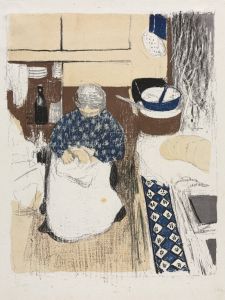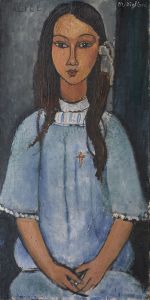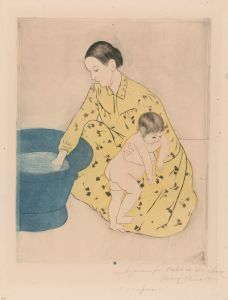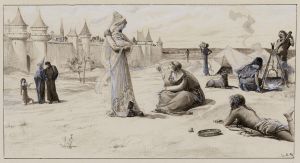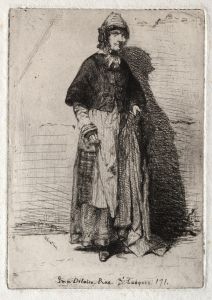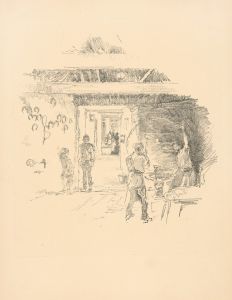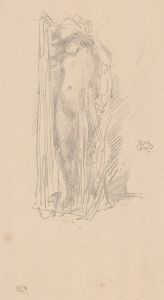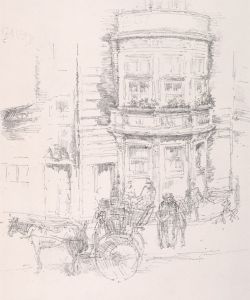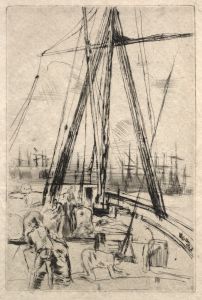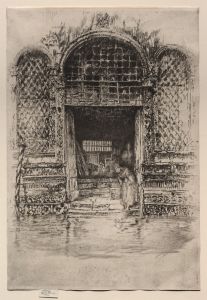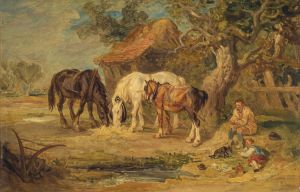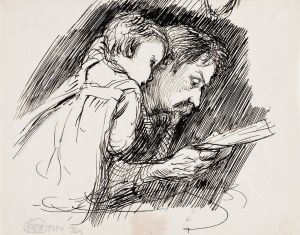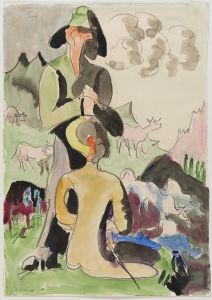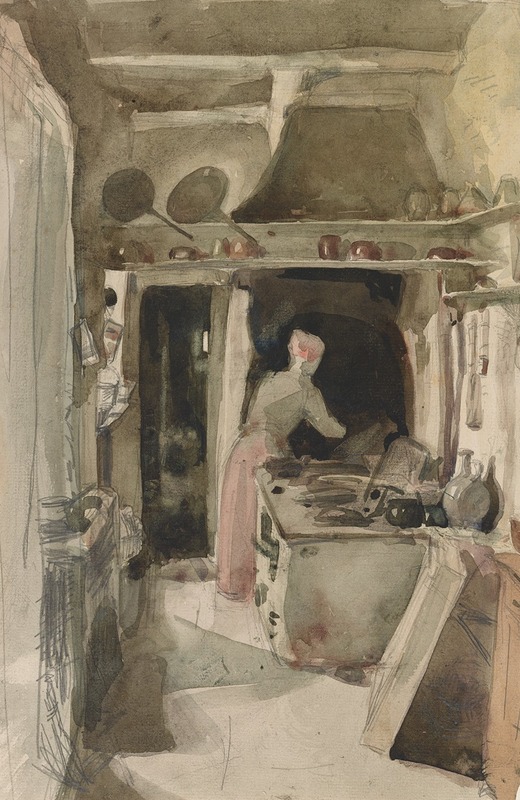
The Kitchen
A hand-painted replica of James Abbott McNeill Whistler’s masterpiece The Kitchen, meticulously crafted by professional artists to capture the true essence of the original. Each piece is created with museum-quality canvas and rare mineral pigments, carefully painted by experienced artists with delicate brushstrokes and rich, layered colors to perfectly recreate the texture of the original artwork. Unlike machine-printed reproductions, this hand-painted version brings the painting to life, infused with the artist’s emotions and skill in every stroke. Whether for personal collection or home decoration, it instantly elevates the artistic atmosphere of any space.
James Abbott McNeill Whistler, an influential American artist, is renowned for his contributions to the art world during the late 19th century. However, there is no widely recognized painting titled "The Kitchen" by Whistler. Whistler is best known for his works such as "Arrangement in Grey and Black No. 1" (commonly known as "Whistler's Mother") and his series of "Nocturnes," which capture the atmospheric effects of landscapes and cityscapes.
Whistler was born on July 11, 1834, in Lowell, Massachusetts, and spent much of his career in Europe, particularly in London and Paris. He was a proponent of "art for art's sake," a philosophy that emphasizes the aesthetic value of art over its narrative or moral content. This approach is evident in his focus on color harmony and composition, often drawing parallels between painting and music.
Throughout his career, Whistler was associated with the Aesthetic Movement, which sought to prioritize beauty and sensory experiences in art. His works often feature subtle color palettes and an emphasis on mood and atmosphere. Whistler's innovative use of color and composition had a significant impact on the development of modern art, influencing artists such as Claude Monet and the Impressionists.
Whistler's artistic style evolved over time, and he experimented with various techniques and subjects. He was known for his portraits, landscapes, and seascapes, often characterized by their delicate tonal variations and emphasis on light and shadow. His "Nocturnes" series, for example, captures the ethereal quality of night scenes, using a limited color palette to evoke a sense of tranquility and introspection.
In addition to his paintings, Whistler was also an accomplished etcher and lithographer. His printmaking work further demonstrated his mastery of line and form, contributing to his reputation as a versatile and innovative artist. Whistler's etchings, in particular, are celebrated for their intricate detail and technical precision.
Whistler's influence extended beyond his artwork; he was also known for his sharp wit and contentious personality. He famously engaged in a legal battle with art critic John Ruskin, who had disparaged Whistler's work. The resulting trial, which Whistler won, highlighted the tension between traditional art criticism and emerging modernist perspectives.
Despite his sometimes controversial reputation, Whistler's contributions to the art world are widely recognized. He was a member of the Royal Academy of Arts and received numerous accolades throughout his career. Today, his works are held in major museums and collections worldwide, continuing to inspire and captivate audiences with their beauty and innovation.
In summary, while there is no specific painting titled "The Kitchen" by James Abbott McNeill Whistler, his legacy as a pioneering artist of the Aesthetic Movement and his influence on modern art remain significant. His dedication to the principles of beauty and harmony in art has left an enduring impact on the artistic landscape.





